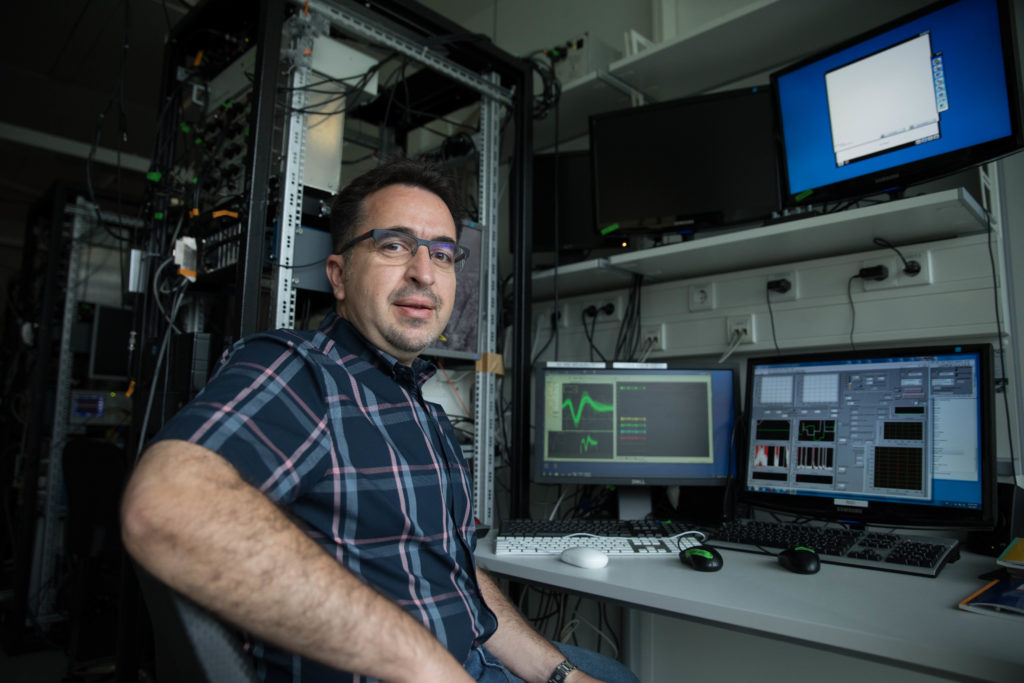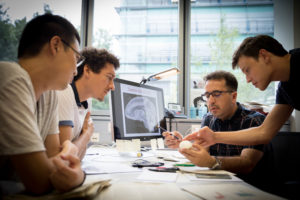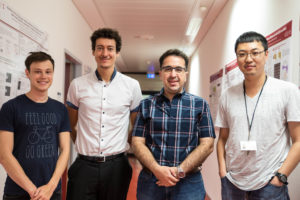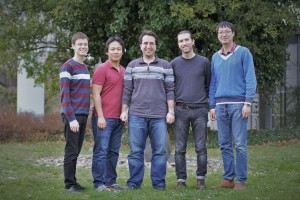
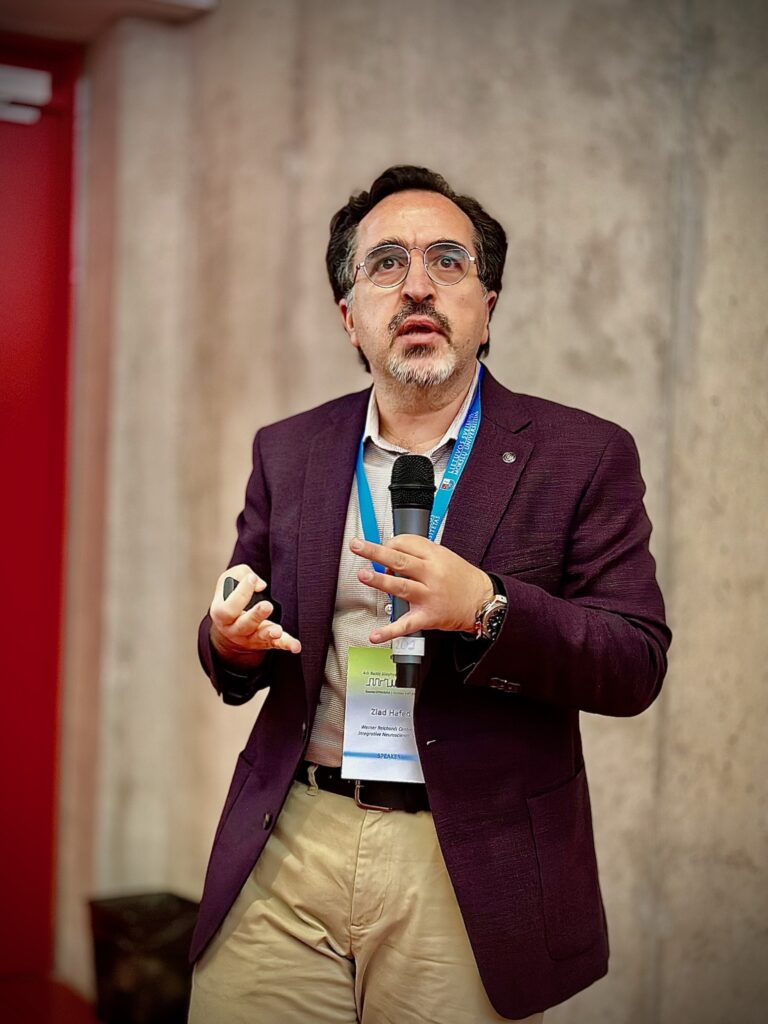
Ziad was trained as an Electrical Engineer at McGill University, and he graduated with great distinction on top of his class. He then obtained his Master’s degree in Electrical Engineering, again receiving highest honors, before completing a Ph.D. Like his undergraduate degree, both his Master’s and Ph.D. degrees were completed at McGill University, after which Ziad moved to the Salk Institute for Biological Studies as an NSERC (Canada) and Sloan-Swartz (USA) Fellow.
Ziad’s interest in vision started at the end of his undergraduate studies, during which he worked on computer vision and developed a novel face recognition algorithm for computers. At the time, computer vision was faced with significant challenges to achieving robust performance, and the field as a whole sometimes looked for insights from biological vision. Ziad was thus intrigued by understanding human vision, because it works so successfully and so effortlessly despite the major theoretical challenges discovered by computer scientists and engineers. As a result, he embarked on developing biomimetic neural network models of brain circuits in his Master’s research, exploring human visual performance in behavioral experiments during his Ph.D., and investigating neurophysiological mechanisms in awake, behaving primates at the Salk Institute for Biological Studies.
Ziad moved to Tuebingen in 2010, and he continues to approach the problem of visual perception using a multitude of techniques. He is particularly interested in the role that eye movements play in supporting visual perception, and he is infinitely grateful for the amazing team of students and scientists working with him. And, even though each discovery is special, some recent ones that are particularly close to his heart are: Hafed, 2013; Chen et al., 2015; Tian et al., 2016; and Hafed & Chen, 2016.
Over the years, Ziad has received many prestigious awards in recognition for his academic achievements, including the British Association Medal for Great Distinction and NSERC (Canada) and Sloan-Swartz (USA) Fellowships for Neuroscience.
